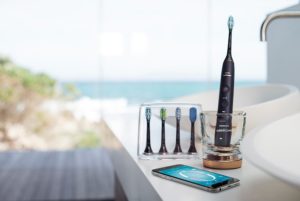 Royal Philips (NYSE: PHG, AEX: PHIA), a global leader in health technology, today released the second set of findings from its Healthy Living in Asia survey. The survey of 4,000 people in Singapore, Indonesia, South Korea, and Thailand, conducted with research agency Kantar Profiles Network, reveals a gap between health monitoring and action in the region: while people are using personal health technology to track their health more than they did before the pandemic, many are not yet actively taking corrective action based on the health data collected. With more personal health technologies will play an even bigger role in self-care in Asia, it will be key to empower consumers to use and understand them better to improve preventive health in 2023 and beyond.
Royal Philips (NYSE: PHG, AEX: PHIA), a global leader in health technology, today released the second set of findings from its Healthy Living in Asia survey. The survey of 4,000 people in Singapore, Indonesia, South Korea, and Thailand, conducted with research agency Kantar Profiles Network, reveals a gap between health monitoring and action in the region: while people are using personal health technology to track their health more than they did before the pandemic, many are not yet actively taking corrective action based on the health data collected. With more personal health technologies will play an even bigger role in self-care in Asia, it will be key to empower consumers to use and understand them better to improve preventive health in 2023 and beyond.
The survey found that the pandemic has driven interest in preventive health with nearly a third (30%) of respondents in the region now using personal health devices more than they did before the pandemic. In Thailand, heart health (47%), oral health (36%), sleep (45%), and nutrition (42 %) are amongst the conditions that people are now monitoring at least monthly. Despite the increase in monitoring, 16% of people in Thailand say that they are rarely and 9% never take action based on the health data collected and 40% claim they modify their health-related behaviour but feel they can do more to stay healthy.

Current health related behaviours of Thai people
After COVID-19, the Importance of healthcare is overall high, which can be seen from more than 40% of Young Millennials or people aged around 26 to 30 years old, used more personal health technologies and devices to actively monitor their health than before the pandemic. Moreover, around 70% of Gen X and Baby Boomers feel it is extremely important to focus on better self-care. Especially, Baby Boomers or people aged around 56 to 65 years old are more cognizant of their healthcare behaviour by seeking more information online, adopting healthier practices and consulting at physical clinics more regularly.
Attitude of Thai respondents towards Digital Personal Healthcare
74% of people claim they are more likely to take some action and adjust their health-related behaviour if they have access to personal health technologies and devices, particularly Gen X (86%) and Baby Boomers (85%) followed by Millennials (73%).

Taking corrective action based on health data
Alike higher health monitoring among Thais, only one-third of Thailand respondents claim to modify their lifestyle based on digital health data as much as they could. Whilst 40% feel they can do more, particularly Gen Z (44%) and Young Millennials (42%).
Crucially, the regional average figures show that a doctor’s recommendation is the biggest motivator to start acting on personal health data-based insights (47%). In Thailand, 51% of people are more inclined to act on their digital health data if recommended by their doctor and healthcare providers. However, only a minority of Thai respondents are sharing this data regularly with their doctors or healthcare providers, with concerns around data privacy (41%) and a lack of know-how on sharing health data (24%). While 23% of respondents in Thailand also admitted that they don’t know how to share data collected from their personal health devices with their doctor and 11% cite their limited awareness of health technology as a barrier to taking better care of their health.

Mr. Viroj Vithayaveroj, Chairman and Managing Director of Philips (Thailand) Company Limited, said, “It is really encouraging to see that so many Thai people recognize the importance of maintaining their long-term good health and managing existing conditions. Monitoring is a great first step, but to see real benefits, more corrective action must be taken when it comes to health. Education is key to improving data literacy and usage. It is also vital that the region’s healthcare systems have frameworks and infrastructures in place to connect healthcare professionals to personal health data in a safe and secure manner to ensure health recommendations benefit from such insights”
Another way to encourage action might lie in making health technology smarter. Consumers in the region displayed an openness to interacting with health data according to the survey. In Thailand, health data-based prompts on personal health devices (49%) and simplified design of personal health technologies to make data easier to understand (51%) ranked highly as motivators for action.
“To encourage data-driven proactive health action by the consumer in 2023 and beyond, we need to do more than connect healthcare practitioners to personal health data. We see potential in also equipping consumers with smart recommendations to act on their data to achieve this. One example of how we’re already doing this is through smart toothbrushes that are linked to consumer apps, effectively offering personalized guidance on brushing behaviour after analysing users’ habits and usage tendencies,” said Muir Keir, Business Leader, Personal Health, Philips ASEAN Pacific.

